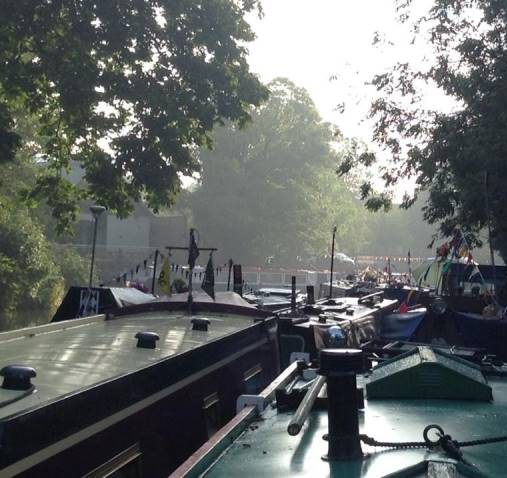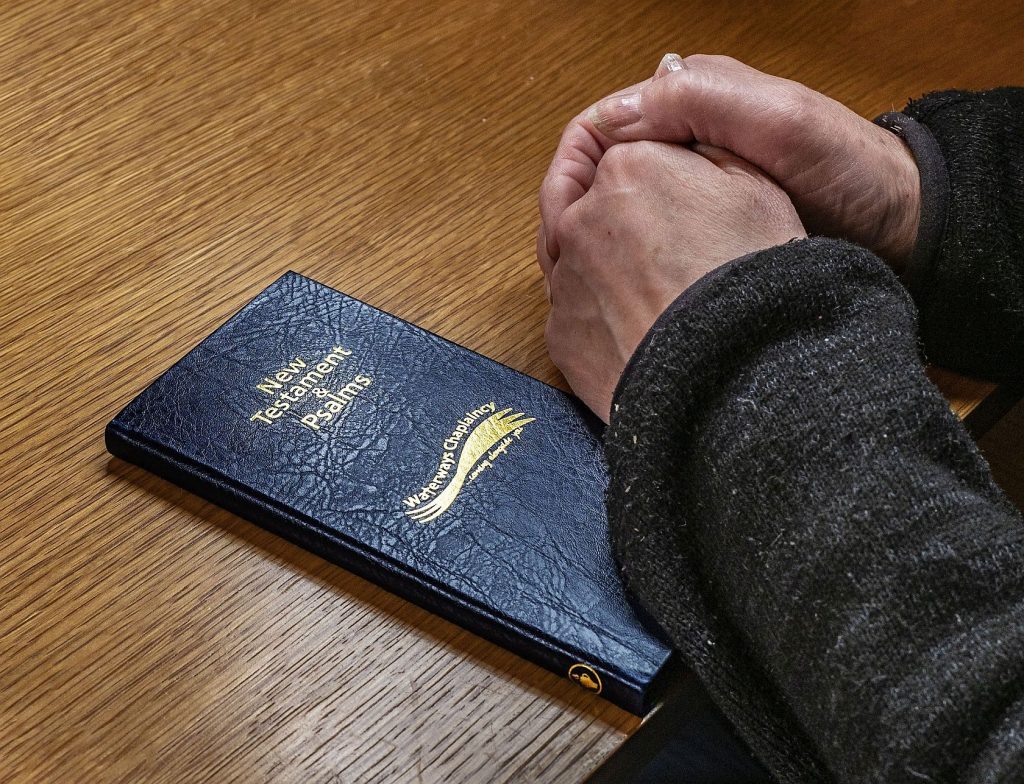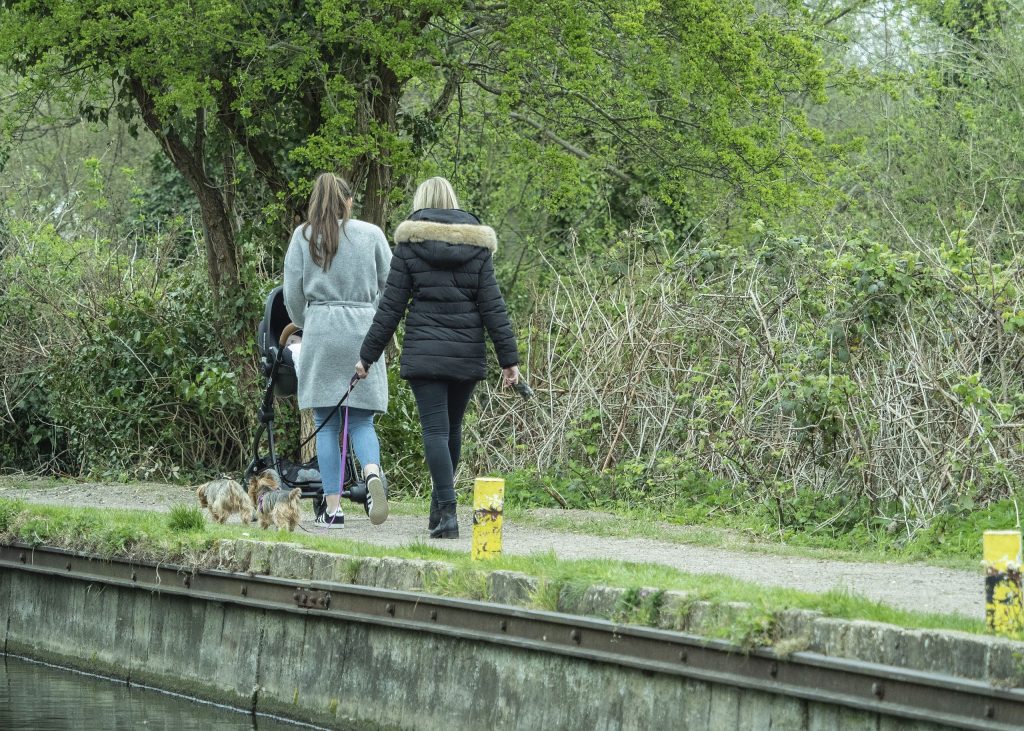A Waterways Chaplain, early in their introductory training, tells of the personal journey that has put them on the tow path just before COVID-19 started to bite

‘I am slowly getting used to identifying myself as a waterways chaplain and I am even a little better at stopping myself from walking on the tow path like a crab so people can’t see the back of the jacket where, in large letters, it says ‘Waterways Chaplain’!’
Iona has recently been appointed as a Probationary Waterways Chaplain and is finding that the COVID-19 crisis is giving Chaplains a new significance for those experiencing lockdown on our canals and other waterways, sometimes in very limited living spaces.
‘My confidence is growing: not only can I connect with people remotely, but in these dark and strange times I am aware that it is less odd for them to see me as a Chaplain: and I’m the only one for about 30 miles.
‘I am an Oxford graduate and a liveaboard boater with a penchant for old motorcycles and ministry. Life on the inland waterways is idyllic in many ways and the proximity to nature is second to none: it can also be tough sometimes, but with this lifestyle also comes a raw and personable community. The boating community is transient, private, self-sufficient and supportive all at the same time. However, help can sometimes be needed when trying to access benefits, healthcare and spiritual support in times of crisis.
‘Those areas are challenging because boaters have different costs which can confuse the system. They have no postcode, can be continuously moving and are often faced with prejudice regarding their lifestyle. Although accessing church communities has got easier in the time I have been on the water, there is still a way to go.
‘Like all humankind, boaters experience hardship and difficulties, and when they do it is good to have an advocate. In many respects we are all advocates, but there is an added benefit to being a Waterways Chaplain. Not only are the Chaplains respected by the authority that runs a large proportion of the Inland Waterways (the Canal and River Trust), but they are formally trained in Safeguarding, GDPR and other essentials for coming alongside people in the good times and the bad.’
‘I didn’t know the Waterways Chaplaincy existed and was surprised when I spotted my first one. Indeed, for fear of being spotted myself, I leapt into the hedge in a sort of ‘Zacchaeus moment’ in order to watch from afar to see what they did. I am not sure what I expected, but my attempt at not being noticed failed and, like Zacchaeus in reverse, I got an invite to dinner. I knew my hosts so I accepted.
‘I made some enquiries about how one became a Waterways Chaplain and was amused to find my hosts tentatively suggesting I might like to consider faith first. They were right: I wasn’t the most obvious Christian for all sorts of reasons, but I did have a firm faith even though I found anything Christian rather overwhelming. I made enquiries but couldn’t quite get my act together, and my application didn’t go anywhere at that point.
‘I am not sure what happened next, but several years later and here I am; a probationary Chaplain. I knew it was the right thing for me to do, but this transition from private liveaboard boater and not very obvious Christian to formal Chaplaincy ministry is taking time. I was given my gilet – the Chaplain’s ‘uniform’ in November which I thought was surprisingly discreet until I saw the large writing on the back!
‘In my first few months, I have found myself advising people on benefits and other local services, accessing health care, relationship challenges, the aftermath of abuse, spirituality and ghosts. Mostly I don’t get to talk about faith, but I just couldn’t help myself when a boater showed me photographs of an apparition of Great Aunt Edna who had been dead for 20 years. To my astonishment I didn’t even get thrown in the cut! Our ministry is about coming alongside people and in that privilege I hope my faith opens doors into where I wouldn’t normally walk.
‘This bridge that the Chaplaincy provides between boaters, the authorities and national services is much needed and the spiritual dimension and application of Christian principles in providing help is important.
Boaters’ needs aren’t unique, but translating our needs into the services that are provided is a journey that is easier travelled with someone else. We do help each other but it can be safer when that person is a formal Waterways Chaplain.
‘As I’ve said, I am the only Chaplain for about 30 miles and it’s difficult to have a presence over such a large patch so the vision for this growing ministry and to see more people on the team is not just exciting, it’s very necessary.’


